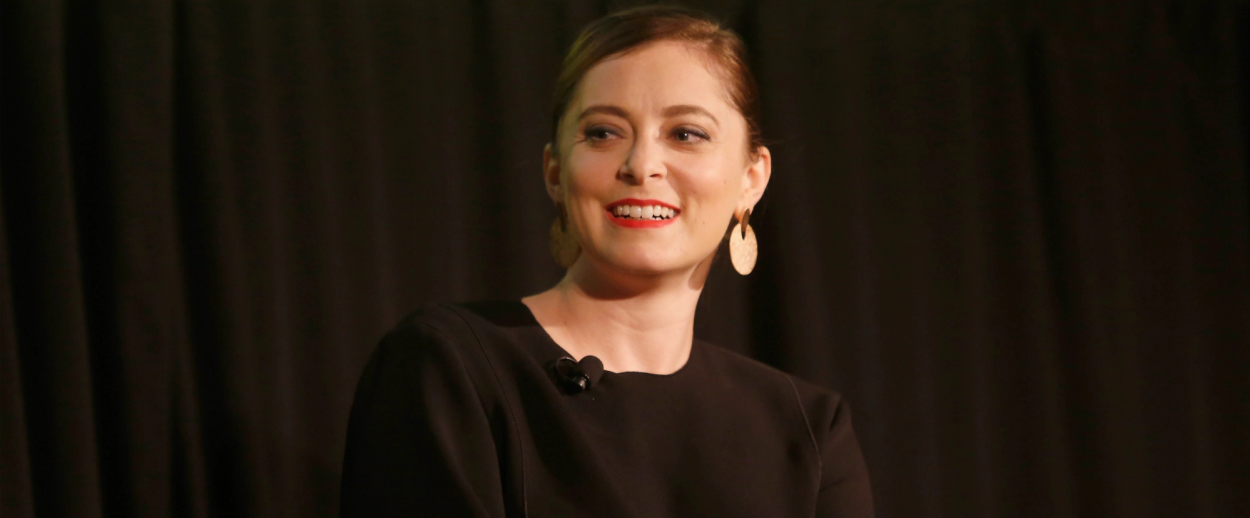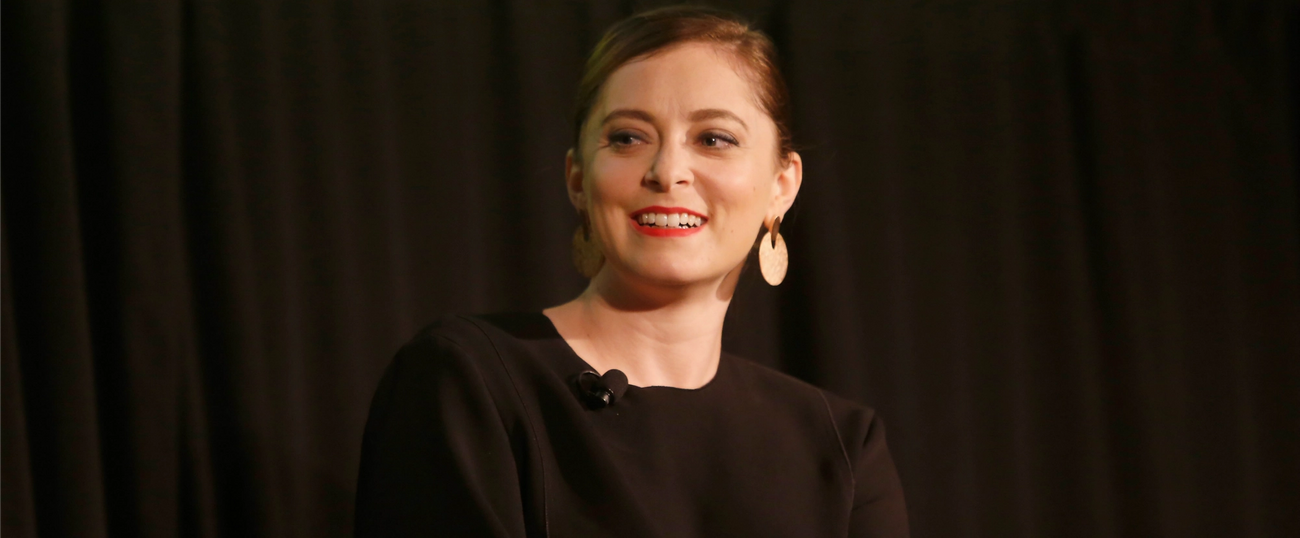The Very Jewish Humor of Rachel Bloom
The star and creator of ‘Crazy Ex-Girlfriend’ on how Jews’ fear of ‘the Cossacks’ translates to comedy




Rachel Bloom is your typical nice Jewish girl: smart, knowledgeable, opinionated, funny, and also very neurotic. The 31-year-old star of CBS’s successful comedy series Crazy Ex-Girlfriend inserts a lot of her vibrant real-life character and background into her on-screen alter-ego, Rebecca Bunch, whose hilarious insanities are well advertised over the series’ previous three seasons.
Among the jokes, witty and vulgar, satirical winks, and the musical numbers, there is a sincere, brave message about mental-health issues, something Bloom herself—subject of an early, in-depth Tablet profile back in 2014—had to deal with all her life. Actually, the process of writing the series summoned past demons that somehow crept into the show. “The anxiety and depression that had invaded my own brain like an alien when I was a kid came back in full force,” she told Glamour magazine in 2016. “I had gone to therapists, but for the first time I sought out a psychiatrist.”
Mental health problems are a private matter, but the comedian sees anxiety as a cultural-social issue, especially when it comes to Jews. In this sense, fictional Rebecca, as well as Bloom herself, are exposing both their neuroticism and Jewishness in the series, in a bittersweet and very amusing manner.
“I think the relations between Judaism and anxiety neurosis are quite interesting,” Bloom tells Tablet, “There are all these studies of epigenetics that show trauma can actually alter your genes. And that is that.” The interview with Bloom and her co-writer and series showrunner, Aline Brosh McKenna, was taking place during San Diego Comic-Con and was put in place to promote the fourth and final series of Crazy Ex-Girlfriend that will premiere on Oct. 12th. It’s a PR-business-like scenario, but when asked about Jews and their neurotic roots, she becomes very personal.
“I was raised with a European Jewish sensibility, and my husband [Dan Gregor], all his grandparents are Holocaust survivors, so there is a lot of evidence to suggest that trauma that happens can get passed by your genes and affect not only your children but also your grandchildren. So I think it is fascinating,” she says. “What I also think is interesting is that the reason maybe Jewish people have a higher rate of anxiety is because that is their survival mechanism. You are saying, ‘Oh, that’s OK, the Cossacks are not coming tonight.’ I’ll put off my phone and light the menorah, but Cossacks are totally coming, and they are earlier.”
With the Cossacks, Nazis and other vicious persecutors in mind, Bloom adapts in the same way as Mel Brooks, Woody Allen, Sarah Silverman, and Larry David to name a few—all kosher comedians who channel their existential Jewish dread through humor. “That’s the root of Yiddish culture and Yiddish humor,” Bloom says. “I did a project on Yiddish culture. Yiddish was developed in the 15th century in Germany by Jews, and they literally called it ‘German despite the Germans,’ because they wanted to have a way to talk about German-Christian oppressors without getting called for it. The idea that words could be the way you fight back and survive and cope really extends into the American Jewish diaspora. You see a real split with American Jews and Israeli Jews because, after WW2, Israel said: ‘Oh, well, Yiddish is a weak feminine language of defeated people who didn’t use their fists to fight back. So get ready Yiddish, we are bringing back Hebrew. I remember I was in Israel a couple of years ago, I wrote a whole album of Hanukkah comedy songs, and we played for our tour guide. We have songs about having cancer and stuff and he was like, “This is so interesting, you guys are so different from us.’”
Brosh McKenna, Bloom’s partner in creating the show and who’s responsible for running it behind the scenes, agrees with the comedian’s theory. As a Sephardic Jewish woman from Israeli and North African descent, she notices the same split from a different point of view. “I think the neurotic thing is more of an American Jews thing, and the Israelis got over that. My father is Israeli and my mother is French Sephardic North African so a lot of the American Jewish cultural touchstones were not mine growing up and my parents still don’t get that at all. But I do think there is some kind of a commonality of Jewish experience. And one thing Rachel and I were lucky enough to do is to write a character who is Jewish and talks about being Jewish in Jewish songs. That used to not be the case on TV, you could absolutely not say that. So that’s been enjoyable because it allows us to be specific and specificity is always better for writing.”
The writing of Crazy Ex-Girlfriend might have benefited from specificity, but the creators’ goal was never to limit their audience. The name of the show isn’t “Crazy Jewish-Girlfriend” or something like that, and Bloom reports that a lot of her “goyim” friends are enjoying the show, laughing in all the right moments, and just getting it. “A lot of what we talk about as Jewish stuff is the experience of being immigrants,” she says when trying to explain the wide popularity of the series in America and all over the world, including Israel. “I think it is still a basic experience for Jewish people. You are American, but you’re not, you’re a part of it, but you’re not. You’re from the inside, but sometimes you’re from the outside. I think because we are a nation of immigrants there is a lot of overlap between Jewish culture, Indian culture, Chinese culture. There are so many similarities.”
Amir Bogen is a film journalist.